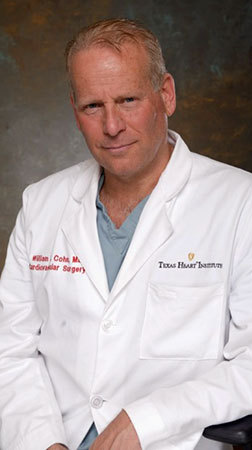Andy Walker's Blog: Andy Walker's Super You Notes, page 2
October 18, 2016
Leo Laporte interviews Andy Walker and Sean Carruthers about the book Super You
Technology guru and broadcaster Leo Laporte invites his old pals Andy Walker and Sean Carruthers, authors of the new book Super You, on his show Triangulation to talk about living forever, nanobots in the brain, losing weight with an embedded “microchip”, nootropics, and growing breast implants with stem cells. By the book on Amazon at http://superyou.link/book
September 9, 2016
For journos & bloggers only: 10 tips for cyborg soccer moms
Hi there:
I’m Andy Walker, one of the authors of this new book…
 Super You author Andy Walker
Super You author Andy Walker
It’s called Super You: How Technology is Revolutionizing What it Means to Be Human
 Super You: How Technology is Revolutionizing What it Means to Be Human
Super You: How Technology is Revolutionizing What it Means to Be Human
This is my wife Kay Walker. She is one of my co-authors.
As promised here are 10 tips for cyborg soccer moms. They are yours for the taking. And if you want more info, give us a shout. We can send you a copy of the book, provide background, give you more info. All we ask in return is a link to this site: http://readsuperyou.com or to the book on Amazon at http://superyou.link/book. Or a shout out with a mention.
In case you need it, here is the official definition of a cyborg:
 Source: MerriamWebster.com
Source: MerriamWebster.com10 tips for cyborg soccer moms
1. Hold off on cosmetic surgery because you’ll soon be able to grow a “boob job” with your own stem cells.
Scientists are very close to perfecting pluripotent stem cells which let you grow any tissue from your own stems cells. And cosmetic surgeons say
2. Thinking of a new baby? Hold off. You’ll soon be able to ensure the are genetically curated.
The technology to curate a baby and select its traits (eye color, hair texture) exists today. However, only gender selection is being offered in the U.S. Teh technology to offer children that have a predisposition for sports is potentially possible. (The most asked for trait is tennis player.) However when ths was first offered the religious right freaked out. And the politicians got their underpants in a twist around it and the LA doctor offering it backed off. Today we are further along and the next curation opportunity is likely to be genetic disease elimination.
3. Nanobots in your brain will let you shop for gifts via thought.
Tiny swimming robots in your bloodstream will be able to enhance your brain cells and connect you to the Internet to expand your access to information and knowledge. So Googling with your thought is not out of the question. ETA 20 to 30 years. Still get ready because we are all going to get smart in a similar way to how a guy that drives a forklift can lift heavy loads
4. Boost the 401K because you are going to live to 100+.
Longevity science has come a long way to the point where it is likely in the next 13 years that we will gain a year of healthy lifespan for every year we live that essentially gives those that want it immortality. (We asked dinner companions during our research if they would like that and people couldn’t get their heads around it. A lot of people go upset at the thought. Especially those that have a faith that preaches meeting their maker.)
5. Hubby having an affair? Don’t worry, you’ll be able to design your own robo-spouse.
Forecasting forward the science to produce strong artificial intelligence (strong AI) is robust. Self driving cars have a form of AI that avoid crashes and learns from road conditions and experience. It’s not much of a stretch to extrapolate the possibility in the next two decades to synthesize a human personality that could be installed into an artificial human (aka flesh grown robot). Even Google has patented a method to transfer robot personalities from data stored in the “cloud”.
If you would like a copy of Super You…call us at 813-501-8043 or email me at andy@cyberwalker.com and we will get a copy into your hands. Your choice of a paperback copy or ebook version (Kindle, Nook, PDF etc).
August 25, 2016
How to live longer
 Want to learn how to live longer? There is increasing evidence that as a human, you will be able to hyper extend your life and live past 100 – and possibly live forever, if you choose, thanks to breakthroughs in science and technology expected in the the next decade or two.
Want to learn how to live longer? There is increasing evidence that as a human, you will be able to hyper extend your life and live past 100 – and possibly live forever, if you choose, thanks to breakthroughs in science and technology expected in the the next decade or two.
While that may seem like a tall order, science and technology are accelerating at a remarkable pace, and that includes medical science, especially in the area of longevity. And, as we write in our futurist tech book Super You, that acceleration is accelerating. So what used to take 10 years to be developed, now takes five. What used to take 5 now takes 2.5. And for every year that goes by these improvements are arriving at a logarithmically faster rate.
Whether you want to live longer or forever (or not) is a personal choice. When the topic comes up, people’s biggest fear is that they will have a hyper extended life in a decrepit body. However, life extension through science and technology comes with the certainty that you will be able to not only heal your body as you age but also reverse the unwanted effects of aging. (This is outlined in detail in our new book Super You: How Technology is Revolutionizing What it Means to Be Human)
That means you will be able to rewind your health, your looks and your body’s biological age through gene therapy, cell protection and restoration techniques and the ability to use your own stems cells to refresh your body to a younger state. Will you be able to rewind to your 25-year-old body with a 150 year old brain? The answer appears to be yes.
There are some fundamental secrets to ensuring an extended life, with actual actions you can take today…so here is how to live longer – 10 ways to hyper extend your life.
1. Live as long as you can to…live longer
This may seem like a counter-intuitive longevity extending action, but do whatever you can to extend your life, because for every year that goes by, breakthroughs in science and technology are increasing. These bring new methods to stay healthier, new treatments to prevent and fight disease, and new breakthroughs in even food production so we stay healthier. The “To Do” item here is to avoid dangerous or risky occupations, stay mentally well (avoiding depression and, obviously, suicide), avoid obesity, avoid stress, avoid weapons (guns kill a lot of people by accident in the U.S.)
The bottom line if you can live to 2030 (about 13 years), there is a very good chance that you can benefit from gaining a year of longevity for every year you live. This according to our friend Ray Kurzweil. We delve into this in depth in Super You, so be sure to grab a copy. You may also get a freebie if you have immediate family members that live a long time. Longevity is a genetic factor.
If your family has all dropped dead in their 50s and 60s, never fear, it accounts for only 20% to 25% of your longevity. Still, if your great grandma and great grandpa are still playing tennis, you’re in luck. After 75 or 80 genes play a more important role in extending your life.
 Eat your veggies and pork for longevity. Pork tacos for dinner? Sure!
Eat your veggies and pork for longevity. Pork tacos for dinner? Sure!2. Eat your vegetables…and sometimes pork
A diet that favors plant-based food appears to provide a longevity boost for most people. Yet full vegetarians or vegans do not necessarily live the longest lives. Moderate or light meat eaters that also favor nuts and vegetables in their diet live well and longer. The life extension protein of choice – if you choose to eat animal based protein – appears to be pork. And as we say in the book Super You, that doesn’t give you an excuse to eat an all-bacon diet.
3. Drink a little, not a lot, and please no smoking
A glass or two or wine or the occasional alcoholic drink, including beer, seems to help with a longer life. Or so goes the research. However that has been recently dispute and moderate drink may increase the risk of cancer.
So what is the truth? People who drink moderately likely have characteristics that are protective against heart disease, is one theory. (more on this here) That could be making alcohol consumption look healthier than it is. Of course, excessive alcohol consumption and alcohol abuse, as with illicit drug use, will hurt your chances of living longer. And forget smoking, it’s been proven to shorten your life one way or another unless you happen to have super-genetics that protect you. It’s not going to help you by any stretch.
That said, back at the bar, red wine, especially French wine, especially from Bordeaux region, appears to contain high levels of resveratrol, which could account for the so called “French paradox”, where steak and butter eating French people have 1/3 less incidence of heart disease compared to their American brethren.
4. Take key supplements, including aspirin and resveratrol
There are several supplements you can take to help potentially boost your longevity. Let’s start with…
Resveratrol
Resveratrol, a red grape skin component, is thought to rev up one of a sirtuins called SIRT1. Sirtuins are enzymes in the human body that manage metabolic processes. They regulate cell replication and slow processes down so that less errors are made. Think about when you make photocopies. No two copies are identical. Some have more ink than others. Copies are close but not exact. When it comes to DNA copying errors can cause disease.
 Resveratrol can be found in red grapes
Resveratrol can be found in red grapesMice put on large doses of resveratrol appear to protect them from the nasty impact of high-fat diets. And more health benefits have been attributed to SIRT1 activation in a large volume of research (100s of trials), including several small human studies.
Resveratrol occurs naturally in red grape skins, raspberries, blueberries and some other berries types. It also occurs in nuts, such as almonds and peanuts. There is significant research that supports that it promotes the ability to extend the life of human cells. However this is not definitive and some contrarians say it has no longevity extending capabilities at all.
Regardless of the controversy, proponents (we interviewed resveratrol researcher David Sinclair in Super You) consume high potency resveratrol supplements , as do two of the authors of Super You. This is the brand of resveratrol authors Andy and Kay take daily. Andy and Kay also take daily fish oil supplements for brain function.
NAD
Another compound called nicotinamide adenine dinucleotide, or NAD for short, also fuels the activity of sirtuins, including SIRT1 — the more NAD there is inside cells, the more beneficial SIRT1 is. SIRT1 is known to trigger a similar benefit to low-calorie diets, which can also slow DNA replication.
NAD induces the creation of new mitochondria (the cell’s energy centers). It can also activate SIRT3, which is thought to keep mitochondria ticking along nicely. Sinclair is part owner of a company called Elysium Health that is making a NAD supplement called Basic, which runs $50 per month.
Aspirin or Vitamin “S”
Andy takes a low dose aspirin every other day as well. Aspirin, also known as a derivative of salicylic acid (it is called acetylsalicylic acid), which is a compound found in willow bark, and in other plants. It defends plants and trees against bugs and promotes healing and is a potent anti-inflammatory compound. High levels of salicylic acid can be found in organic fruit and vegetables. Some people refer to it as Vitamin “S”.
 Type II diabetes drug Metformin is being touted as a longevity enhancing drug
Type II diabetes drug Metformin is being touted as a longevity enhancing drug5. Take Metformin, a low-cost drug as a supplement
Metformin is a low cost drug that lowers blood sugar. Typically it is prescribed to people to prevent or treat type II diabetes. Dr. Nir Barzilai, a researcher at the Albert Einstein School of Medicine in New York, has shown that it has anti-aging properties. In a UK study , metformin was compared with other anti-diabetes drugs, and demonstrated a decreased risk of cardiovascular disease.
This has been supported by additional studies. Mouse studies show longevity extending effects. And numerous epidemiologic studies show an association of metformin use with decreased risk of cancer and decreased cancer mortality rate. Metformin’s potential protection against cancer has garnered a lot of attention. Over 100 active studies relating to metformin and cancer have been registered on the U.S. government website Clinical Trials.gov. Metformin is very safe and has been around along time.
Researchers say it works because it inhibits oxygen consumption in mitochondria (the power plant in cells). It turn down the cell’s metabolic thermostat. When a furnace burns fuel, it heats up, but the excessive heat also uses the furnace more resulting in the need to replace it sooner. That said your furnace lasts longer if you use it less by keep the thermostat down.
Learn more about using metformin off-label as a longevity supplement with this free download: Metformin off label FAQ for longevity.
6. Exercise, but you don’t have to be a gym rat
If you are groaning that you really don’t want to go to the gym or run a marathon, then take heart that you don’t have to be an athletic dynamo. Sure get in shape or get in better shape. Just be active. Get a dog and walk it every day. Go for long walks. Learn to hike.
The famed long-living farmers of Okinawa in Japan do not run marathons and yet many are centenarians and supercentenarians (they live to 100 and beyond). They do stay active. They tend gardens. They walk. They lift things. They don’t plop into a La Z Boy at 55 and watch reruns for four to five more decades.
Moderate exercise or an active lifestyle is perhaps the best longevity treatment you can do for you body and heart health, however alone it won’t get you there if you live like a hermit, eat poorly and stress yourself out. Stress is a huge killer and leading an active lifestyle helps you manage it effectively.
 Stay married for a longer life
Stay married for a longer life7. Stay married, and marry a younger woman if you are a man
Men who marry and stay married live longer than men who divorce or stay single. Why? It could be that it is because their wives take better care of them, feed them properly, and ensure they get the medical attention they need, when they need it. A major survey of 127,545 American adults revealed that married men are healthier than their counterparts who never got married or who got divorced. (Or became widowers).
Married men live longer than men without spouses. And men who marry after the age of 25 get better longevity protection from their union than those who marry when they are younger. And there is one more bonus – the longer a man stays married, the greater his life extension advantage is over his unmarried peers. Some good material here on the topic of the life extension benefits of marriage.
People living with unmarried partners also do better than those that live solo, but men that live with their wives enjoy the best health. The jury is still out for same-sex married couples. There’s not enough data to demonstrate an advantage yet. although there is a growing consensus that any marriage is good for longevity. And finally, men should marry younger wives to live longer. The younger his wife, the longer a man lives. As for women? Read on…
8. Marry a same age man, if you are a women…and stay married
As for a woman’s life expectancy, marriage appears to have less significant benefit (compared to men), however married women still get a boost in their health and longevity when they marry. Women also fare better than their husbands if their spouse dies. Bereavement is not good for a man’s life expectancy when his wife predeceases him. But for a woman, she has a better chance of living beyond her husband if he pre-deceases her. As for the age gap, a woman that marries a same or similar aged man lives longer than women who marry old or younger. In fact, the greater the age difference from her husband, irrespective of whether she is younger or older than him, the shorter her lifespan. And marrying a younger man does not extend a woman’s life, as it turns out. More fascinating data here on this topic
 The Masai tribe live in small supportive villages in Kenya.
The Masai tribe live in small supportive villages in Kenya.9. Live in a supportive community
People who live in a supportive community live longer than those that don’t. The benefits are obvious. Tight communities come together to solve problems. They support child-rearing taking pressure off parents. They provide emotional support for each other at difficult times in life. Relieving stress is likely the key benefit here.
10. Practice your faith…or have purpose to your life
People of faith see a benefit in their longevity because they typically believe they have a purpose for being on the planet, and that their god has a plan for them. So it was with people who had a strong faith in the German concentration camps. They survived their situation because they lived with purpose. The agnostic or atheists among them had less resiliency.
 Live with purpose and/or practice a faith
Live with purpose and/or practice a faithWomen of faith saw the most benefit for their longevity. Men still got a boost from their religion, but less so than women. A research study gathered at data on almost 75,000 American female nurses (part of the the Nurses’ Health Study). The participants answered questions about whether they attended religious services regularly every four years between 1992 and 2012, and about other aspects of their lives over the years.
The researchers found that the women (who were middle aged) who attended church more than once a week had a 33% lower risk of dying during the study compared to women who reported that they never attended. Less-frequent attendance was shown to also reduce the risk of death. Women that attended once per week or less than weekly had a 26% and 13% lower risk of death, respectively. More on the Nurse’s Study here.
If you don’t have a faith and don’t plan to get one, don’t worry. You can still live with purpose. If you have a reason to live – such as a loving family, a fulfilling life, or a reason for being – you can gain the same or similar benefits to extend your life and health it has been shown.
Learn more about how to live longer
If you’d like to read more about how to live a longer life, download a free chapter from our book on hyper longevity. Or simply buy the book (it’s available as a paperback or as a ebook), which we would love you to do. You’ll discover not only how to live a long life, but how the emerging technology revolution – which is in progress – is going to make human life so much easier, better, and healthier for so many people.
The post How to live longer appeared first on Super You: How Technology is Revolutionizing What It Means to Be Human.
How to live longer: 10 ways to hyper extend your life
 Want to learn how to live longer? There is increasing evidence that as a human, you will be able to hyper extend your life and live past 100 – and possibly live forever, if you choose, thanks to breakthroughs in science and technology expected in the the next decade or two.
Want to learn how to live longer? There is increasing evidence that as a human, you will be able to hyper extend your life and live past 100 – and possibly live forever, if you choose, thanks to breakthroughs in science and technology expected in the the next decade or two.
While that may seem like a tall order, science and technology are accelerating at a remarkable pace, and that includes medical science, especially in the area of longevity. And, as we write in our futurist tech book Super You, that acceleration is accelerating. So what used to take 10 years to be developed, now takes five. What used to take 5 now takes 2.5. And for every year that goes by these improvements are arriving at a logarithmically faster rate.
Whether you want to live longer or forever (or not) is a personal choice. When the topic comes up, people’s biggest fear is that they will have a hyper extended life in a decrepit body. However, life extension through science and technology comes with the certainty that you will be able to not only heal your body as you age but also reverse the unwanted effects of aging. (This is outlined in detail in our new book Super You: How Technology is Revolutionizing What it Means to Be Human)
That means you will be able to rewind your health, your looks and your body’s biological age through gene therapy, cell protection and restoration techniques and the ability to use your own stems cells to refresh your body to a younger state. Will you be able to rewind to your 25-year-old body with a 150 year old brain? The answer appears to be yes.
There are some fundamental secrets to ensuring an extended life, with actual actions you can take today…so here is how to live longer – 10 ways to hyper extend your life.
1. Live as long as you can to…live longer
This may seem like a counter-intuitive longevity extending action, but do whatever you can to extend your life, because for every year that goes by, breakthroughs in science and technology are increasing. These bring new methods to stay healthier, new treatments to prevent and fight disease, and new breakthroughs in even food production so we stay healthier. The “To Do” item here is to avoid dangerous or risky occupations, stay mentally well (avoiding depression and, obviously, suicide), avoid obesity, avoid stress, avoid weapons (guns kill a lot of people by accident in the U.S.) The bottom line if you can live to 2030 (about 13 years), there is a very good chance that you can benefit from gaining a year of longevity for every year you live. This according to our friend Ray Kurzweil. We delve into this in depth in Super You, so be sure to grab a copy. You may also get a freebie if you have immediate family members that live a long time. Longevity is a genetic factor. If your family has all dropped dead in their 50s and 60s, never fear, it accounts for only 20% to 25% of your longevity. Still, if your great grandma and great grandpa are still playing tennis, you’re in luck. After 75 or 80 genes play a more important role in extending your life.
 Eat your veggies and pork for longevity. Pork tacos for dinner? Sure!
Eat your veggies and pork for longevity. Pork tacos for dinner? Sure!2. Eat your vegetables…and sometimes pork
A diet that favors plant-based food appears to provide a longevity boost for most people. Yet full vegetarians or vegans do not necessarily live the longest lives. Moderate or light meat eaters that also favor nuts and vegetables in their diet live well and longer. The life extension protein of choice – if you choose to eat animal based protein – appears to be pork. And as we say in the book Super You, that doesn’t give you an excuse to eat an all-bacon diet.
3. Drink a little, not a lot, and please no smoking
A glass or two or wine or the occasional alcoholic drink, including beer, seems to help with a longer life. Or so goes the research. However that has been recently dispute and moderate drink may increase the risk of cancer. So what is the truth? People who drink moderately likely have characteristics that are protective against heart disease, is one theory. (more on this here) That could be making alcohol consumption look healthier than it is. Of course, excessive alcohol consumption and alcohol abuse, as with illicit drug use, will hurt your chances of living longer. And forget smoking, it’s been proven to shorten your life one way or another unless you happen to have super-genetics that protect you. It’s not going to help you by any stretch.
That said, back at the bar, red wine, especially French wine, especially from Bordeaux region, appears to contain high levels of resveratrol, which could account for the so called “French paradox”, where steak and butter eating French people have 1/3 less incidence of heart disease compared to their American brethren.
4. Take key supplements, including aspirin and resveratrol
There are several supplements you can take to help potentially boost your longevity. Let’s start with…
Resveratrol
Resveratrol, a red grape skin component, is thought to rev up one of a sirtuins called SIRT1. Sirtuins are enzymes in the human body that manage metabolic processes. They regulate cell replication and slow processes down so that less errors are made. Think about when you make photocopies. No two copies are identical. Some have more ink than others. Copies are close but not exact. When it comes to DNA copying errors can cause disease.
 Resveratrol can be found in red grapes
Resveratrol can be found in red grapesMice put on large doses of resveratrol appear to protect them from the nasty impact of high-fat diets. And more health benefits have been attributed to SIRT1 activation in a large volume of research (100s of trials), including several small human studies.
Resveratrol occurs naturally in red grape skins, raspberries, blueberries and some other berries types. It also occurs in nuts, such as almonds and peanuts. There is significant research that supports that it promotes the ability to extend the life of human cells. However this is not definitive and some contrarians say it has no longevity extending capabilities at all. Regardless of the controversy, proponents (we interviewed resveratrol researcher David Sinclair in Super You) consume high potency resveratrol supplements , as do two of the authors of Super You. This is the brand of resveratrol authors Andy and Kay take daily. Andy and Kay also take daily fish oil supplements for brain function.
NAD
Another compound called nicotinamide adenine dinucleotide, or NAD for short, also fuels the activity of sirtuins, including SIRT1 — the more NAD there is inside cells, the more beneficial SIRT1 is. SIRT1 is known to trigger a similar benefit to low-calorie diets, which can also slow DNA replication.
NAD induces the creation of new mitochondria (the cell’s energy centers). It can also activate SIRT3, which is thought to keep mitochondria ticking along nicely. Sinclair is part owner of a company called Elysium Health that is making a NAD supplement called Basic, which runs $50 per month.
Aspirin or Vitamin “S”
Andy takes a low dose aspirin every other day as well. Aspirin, also known as a derivative of salicylic acid (it is called acetylsalicylic acid), which is a compound found in willow bark, and in other plants. It defends plants and trees against bugs and promotes healing and is a potent anti-inflammatory compound. High levels of salicylic acid can be found in organic fruit and vegetables. Some people refer to it as Vitamin “S”.There is also a new
 Type II diabetes drug Metformin is being touted as a longevity enhancing drug
Type II diabetes drug Metformin is being touted as a longevity enhancing drug5. Take Metformin, a low-cost drug as a supplement
Metformin is a low cost drug that lowers blood sugar. Typically it is prescribed to people to prevent or treat type II diabetes. Dr. Nir Barzilai, a researcher at the Albert Einstein School of Medicine in New York, has shown that it has anti-aging properties. In a UK study , metformin was compared with other anti-diabetes drugs, and demonstrated a decreased risk of cardiovascular disease.
This has been supported by additional studies. Mouse studies show longevity extending effects. And numerous epidemiologic studies show an association of metformin use with decreased risk of cancer and decreased cancer mortality rate. Metformin’s potential protection against cancer has garnered a lot of attention. Over 100 active studies relating to metformin and cancer have been registered on the U.S. government website Clinical Trials.gov. Metformin is very safe and has been around along time.
Researchers say it works because it inhibits oxygen consumption in mitochondria (the power plant in cells). It turn down the cell’s metabolic thermostat. When a furnace burns fuel, it heats up, but the excessive heat also uses the furnace more resulting in the need to replace it sooner. That said your furnace lasts longer if you use it less by keep the thermostat down.
Learn more about using metformin off-label as a longevity supplement with this free download: Metformin off label FAQ for longevity.
6. Exercise, but you don’t have to be a gym rat
If you are groaning that you really don’t want to go to the gym or run a marathon, then take heart that you don’t have to be an athletic dynamo. Sure get in shape o rget in better shape. Just be active. Get a dog and walk it every day. Go for long walks. Learn to hike. The famed long-living farmers of Okinawa in Japan do not run marathons and yet many are centenarians and supercentenarians (they live to 100 and beyond). They do stay active. They tend gardens. They walk. They lift things. They don’t plop into a La Z Boy at 55 and watch reruns for five more decades. Moderate exercise or an active lifestyle is perhaps the best longevity treatment you can do for you body and heart health, however alone it won’t get you there if you live like a hermit, eat poorly and stress yourself out. Stress is a huge killer and leading an active lifestyle helps you manage it effectively.
 Stay married for a longer life
Stay married for a longer life7. Stay married, and marry a younger woman if you are a man
Men who marry and stay married live longer than men who divorce or stay single. Why? It could be that it is because their wives take better care of them, feed them properly, and ensure they get the medical attention they need, when they need it. A major survey of 127,545 American adults revealed that married men are healthier than their counterparts who never got married or who got divorced. (Or became widowers). Married men live longer than men without spouses. And men who marry after the age of 25 get better longevity protection from their union than those who marry when they are younger. And there is one more bonus – the longer a man stays married, the greater his life extension advantage is over his unmarried peers. Some good material here on the topic of the life extension benefits of marriage. People living with unmarried partners also do better than those that live solo, but men that live with their wives enjoy the best health. The jury is still out for same-sex married couples. There’s not enough data to demonstrate an advantage yet. although there is a growing consensus that any marriage is good for longevity. And finally, men should marry younger wives to live longer. The younger his wife, the longer a man lives. As for women? Read on…
8. Marry a same age man, if you are a women…and stay married
As for a woman’s life expectancy, marriage appears to have less significant benefit (compared to men), however married women still get a boost in their health and longevity when they marry. Women also fare better than their husbands if their spouse dies. Bereavement is not good for a man’s life expectancy when his wife predeceases him. But for a woman, she has a better chance of living beyond her husband if he pre-deceases her. As for the age gap, a woman that marries a same or similar aged man lives longer than women who marry old or younger. In fact, the greater the age difference from her husband, irrespective of whether she is younger or older than him, the shorter her lifespan. And marrying a younger man does not extend a woman’s life, as it turns out. More fascinating data here on this topic
 The Masai tribe live in small supportive villages in Kenya.
The Masai tribe live in small supportive villages in Kenya.9. Live in a supportive community
People who live in a supportive community live longer than those that don’t. The benefits are obvious. Tight communities come together to solve problems. They support child-rearing taking pressure off parents. They provide emotional support for each other at difficult times in life. Relieving stress is likely the key benefit here.
10. Practice your faith…or have purpose to your life
People of faith see a benefit in their longevity because they typically believe they have a purpose for being on the planet, and that their god has a plan for them. So it was with people who had a strong faith in the German concentration camps. They survived their situation because they lived with purpose. The agnostic or atheists among them had less resiliency.
 Live with purpose and/or practice a faith
Live with purpose and/or practice a faithWomen of faith saw the most benefit for their longevity. Men still got a boost from their religion, but less so than women. A research study gathered at data on almost 75,000 American female nurses (part of the the Nurses’ Health Study). The participants answered questions about whether they attended religious services regularly every four years between 1992 and 2012, and about other aspects of their lives over the years.
The researchers found that the women (who were middle aged) who attended church more than once a week had a 33% lower risk of dying during the study compared to women who reported that they never attended. Less-frequent attendance was shown to also reduce the risk of death. Women that attended once per week or less than weekly had a 26% and 13% lower risk of death, respectively. More on the Nurse’s Study here.
If you don’t have a faith and don’t plan to get one, don’t worry. You can still live with purpose. If you have a reason to live – such as a loving family, a fulfilling life, or a reason for being – you can gain the same or similar benefits to extend your life and health it has been shown.
Learn more about how to live longer
If you’d like to read more about how to live a longer life, download a free chapter from our book on hyper longevity. Or simply buy the book (it’s available as a paperback or as a ebook), which we would love you to do. You’ll discover not only how to live a long life, but how the emerging technology revolution – which is in progress – is going to make human life so much easier, better, and healthier for so many people.
August 24, 2016
You are already a cyborg, says Digital Trends
Whenever Simon Cohen calls our author Andy Walker answers. Cohen and Walker know each other well through their various media adventures in Toronto.
 So when Simon said: What do you know about cyborgs and the future human enhancement, Andy said, Well I am an author of a new new book on it and shared an early completed manuscript with him. This was useful because Simon was writing an epic project from DigitalTrends.com on the future of being human.
So when Simon said: What do you know about cyborgs and the future human enhancement, Andy said, Well I am an author of a new new book on it and shared an early completed manuscript with him. This was useful because Simon was writing an epic project from DigitalTrends.com on the future of being human.
The first installment is called: Cyborgs are already here, but the next steps will make you nauseous
And Simon does great service to Andy’s expertise on the topic in his piece and the book Super You: How Technology is Revolutionizing What it Means to Be Human .
So give this amazingly great piece of journalism a read, because Simon Cohen did it great futurist justice to his piece on the future and becoming a cyborg.
You are already cyborg, says Digital Trends
Whenever Simon Cohen calls our author Andy Walker answers. Cohen and Walker know each other well through their various media adventures in Toronto.
 So when Simon said: What do you know about cyborgs and the future human enhancement, Andy said, Well I am an author of a new new book on it and shared an early completed manuscript with him. This was useful because Simon was writing an epic project from DigitalTrends.com on the future of being human.
So when Simon said: What do you know about cyborgs and the future human enhancement, Andy said, Well I am an author of a new new book on it and shared an early completed manuscript with him. This was useful because Simon was writing an epic project from DigitalTrends.com on the future of being human.
The first installment is called: Cyborgs are already here, but the next steps will make you nauseous
And Simon does great service to Andy’s expertise on the topic in his piece and the book Super You: How Technology is Revolutionizing What it Means to Be Human .
So give this amazingly great piece of journalism a read, because Simon Cohen did it great futurist justice to his piece on the future and becoming a cyborg.
August 19, 2016
Uber to deploy driverless cabs in Pittsburgh
.errordiv { padding:10px; margin:10px; border: 1px solid #555555;color: #000000;background-color: #f8f8f8; width:500px; }#ai-layer-div-advanced_iframe p {height:100%;margin:0;padding:0}
Uber is rolling out a fleet of Volvo SUVs outfitted with driverless technologies – aka robotic taxis – in Pittsburgh. This is sooner than perhaps anyone expected in terms of a mass market availability of driverless technology on the streets. Exciting times. And the beginning of a revolution.
And if you are worried think about how you related to ATMs when they were first deployed in the 1980s – if you were an adult then (and remember).
Super You author commented on this development on CTV News Channel in Canada. Clip available later today.
August 14, 2016
Super You interview on GeeksLife: Kay Walker and Andy Walker discuss the future of being human
Catch Kay and Andy’s hour long appearance on Facebook Live show Geeks Life hosted by Luria Petrucci.
Play video now:
https://www.facebook.com/GeeksLifeNet/videos/822188267883106/
Learn more about Geeks Life…CLICK HERE
August 9, 2016
How to build a permanent artificial heart
Heart disease is the No. 1 killer in America, outpacing cancer just slightly. The mechanics are simple. It fails to pump blood through the human body due to either blockage of the feeder arteries and the heart muscle starved of oxygen rich blood dies. The the heart stops, and then you die.
But what if surgeons could replace the heart with a durable and permanent replacement device that could pump blood reliably without the need for replacement for a long long time – longer than the natural lifespan of a human (which is typically around 79 years in the U.S.).
A device like that would save 614,348 American lives each year (based of 2105 CDC data) and millions more worldwide.
Up until now, there’s been no artificial heart candidate that can be a permanent replacement for the biological pump humans are born with. There have been some noble efforts, however most of the devices act as bridge technology that can keep a heart patient alive until a transplant organ becomes available.
The human heart is a very efficient pump, and tough to replace with a mechanical device. There’s not much space in the chest cavity. There are issues of durability. It needs to operate efficiently for 80 years or so and increasingly longer. And it needs to be powered.
In the next two years or likely sooner thereafter, that is likely to change.
In my book Super You: How Technology is Revolutionizing What it Means to Be Human my co-authors and I interviewed Dr. Billy Cohn, who along with his partner Dr Bud Frazier, have developed a heart-assist device which is used commonly used to help an ailing human heart push blood. Cohn and Frazier are researchers at the Texas Heart Institute in Houston,
The two doctors have since partnered with Dr Daniel Timms, an Australian inventor, whose father died of congestive heart failure. Timms was driven to invent a permanent heart replacement device. However he ran out of funding and resources, but reached out to Cohn and Frazier, and his design along with their expertise, support and funding have filled in the shortcomings of the Texas-designed device and now it’s almost ready for human primetime transplant.
But first some background…
In the 1980s, physician inventor Rich Wampler visited Egypt and witnessed local workers using a hand-turned Archimedes screw to pump water up a river bank for irrigation. (See video of the screw: Video: The Archimedes Screw.)
He realized that if a screw could move water against gravity, perhaps it could move blood against pressure. So he designed a prototype that used an external motor outside the body to spin a small screw the size of a pencil eraser 25,000 times per minute inside the body.
Perhaps, he reasoned, it could pull a meaningful amount of blood out of a weakened ventricle to get a patient through a short period of heart failure.
Wampler showed the device to Frazier, who was initially concerned that the rapidly spinning screw would destroy fragile blood cells. Research showed it wasn’t an issue, so, in 1988, the device was used to help save a dying patient. A number of durable, permanent, screw-like assist pumps were developed over the next few years. Unlike the assist pumps that beat like the human heart, these rapidly spinning pumps were much smaller and much more durable.
 Heart researcher Dr. Billy Cohn
Heart researcher Dr. Billy Cohn“These continuous flow pumps have no flexible membranes, no cams, no cam followers, no high torque rotors,” said Cohn. “The new pumps eliminate all that mechanical complexity … they’re small, they’re quiet, and they’re very durable.”
In these earliest heart-assisting devices, the spinning screw, sometimes also called an “impeller,” was supported with a mechanical bearing that was impervious to wear and was kept clean by the rapid flow of blood.
“There was one moving part, so nothing to fail,” Cohn explained.
With the newest generation of assist pump, the spinning impeller is suspended in a magnetic field. Now, even the bearings have been eliminated.
Enter the jet-engine heart.
One of the first of these spinning assist pumps was the HeartMate II, a device that assists a weakened heart by drawing blood from the left ventricle.
It is just like the one Vice President Dick Cheney had implanted.
Now, many heart centers have tried to implant a pair of assist pumps; one in each ventricle…but it is not ideal because two controllers are needed and there is limited space inside the chest. Cohn and Frazier began to investigate if it would be possible to remove the heart completely and replace it with two spinning pumps.
Although a significant percentage of patients implanted with continuous flow assist pumps lose their pulse, the pressure in the arteries still rises and falls with each heartbeat—just not enough to be felt with fingertips.
Cohn and Frazier’s idea was validated through extensive research in the large animal facility at the Texas Heart institute. It showed conclusively that calves could be kept alive with continuous flow devices. The animals would eat, sleep, and grow like normal calves, and would interact with caregivers and exercise on a treadmill, and yet they had no heartbeat, no EKG, and no pulse.
In 2011 a gravely ill man, arrived at the Texas Heart Institute. His diseased heart was replaced with a pair of HeartMate II pumps. The device kept Lewis alive for more than five weeks, and it even allowed him to sit up and interact with his family after a prolonged pre-operative period. Lewis died from progressive failure of some of his other organs. But, the heart replacement showed it was possible to live without the original organ for longer periods.
Through all this work, Cohn and Frazier talked about their research at professional society meetings and at speaking engagements. It included a talk at TEDMED in 2012.
As a result of that exposure, they met Daniel Timms, an Australian scientist living in Australia.
He independently came upon the idea that a continuous-flow device was the way to go. His unique design addressed many of the challenges caused by a pair of spinning pumps. And it wasn’t unlike the technology being used by Frazier and Cohn.
The device Timms created contained a single moving part suspended in an electromagnetic field. The single spinning disc had impeller vanes on each of the two faces. One side took the bright red blood returning from the lungs and pumped it to the rest of the body. On the other side of the same spinning disk, vanes drive the blood returning from the body to the lungs. The one spinning disk performs the function of two pumps.
Timms designed the spinning disc to shift slightly from one side to the other, based on changes in pressure. This resulted in a change in the relative strength and efficiency of the left and right pumps. It responds to physiological changes faster than a natural human
heart. The strength of the electromagnetic field is adjusted 20,000 times each second to keep the disc spinning in space.
Timms didn’t have the resources, institutional experience, and support to get the device to work. But when he happened on the Cohn-Frazier TEDMED talk, he flew to the Houston.
“He was unshaven, and had on blue jeans, but he seemed like a nice young man, so I was going to let him down softly when I figured out why his device was tragically flawed, as soon as I figured it out,” said Cohn, recounting the meeting.
But Timms’ pitch was brilliant. “He starts describing this device. I sort of cross examine him. I say ‘What about this? What about that?’ He had great responses to everything,” said Cohn. “We had scheduled a 30-minute meeting. And after talking to him for three hours, I realize this guy is one of the most brilliant men I’ve ever met, and his device addresses many of the challenges and shortcomings of our twin turbine concept.”
 Specifically, it had the potential to be much smaller. It automatically balanced the left and right sides of the circulation. It would only require a single controller. And, most importantly, it wouldn’t wear out after a year.
Specifically, it had the potential to be much smaller. It automatically balanced the left and right sides of the circulation. It would only require a single controller. And, most importantly, it wouldn’t wear out after a year.
Cohn and Frazier invited Timms and his team to come to Houston. To back Timms, the Texas Heart Institute team leveraged their expertise, network, and their ability to raise money, and used their experience with heart replacement and their large animal lab to move the project forward. Dr. Frazier and Dr. Cohn persuaded gifted engineer, Dr. Daniel Timms, and his team to relocate from Australia and Germany to the Texas Heart Institute in Houston to work on their BiVACOR total artificial heart device
The results to date have been extremely encouraging, so much so that Frazier and Cohn are fairly convinced that the device will be the first practical permanent mechanical replacement for the failing human heart.
By the way, the device will be powered by a short-range wireless power transmitter that uses external batteries that generate a high-intensity oscillating magnetic field. It is beamed into the body to power the heart-replacement device in the chest.
You can read this story in greater detail in Super You – get it from Amazon. Or order Super You online directly from Pearson, our publisher (ebook or paperback).
August 6, 2016
What is the single, most important thing you can change to ensure a longer and healthier life?
I answer a fair number of questions on Quora.com.
And I was recently asked:
What is the single, most important thing you can change to ensure a longer and healthier life?
Here’s my answer:
In my new book Super You: How Technology has Revolutionized What it Means to Be Human my co-authors, and I examined hyper-longevity extensively. We looked at all the aggregated longevity research and came to the conclusion that there is a key factor you can influence to live a long and healthy life than perhaps this one, however it is a bit recursive. Still there is a method to my madness. Stay with me. Here it is:
> Live as long as possible.
Now that may seem dumb given you’re asking how to live a longer healthier life, but let me explain. The science and technology that drives discoveries that advance human longevity are accelerating. That is true of all science and technologies. It’s all accelerating.
So the longer you live, the longer you will potentially live. Ray Kurzweil, who we consulted with on the book – which is based on his (ok, Vernor Vinge’s) technology Singularity theory. Ray popularized the thinking in his book The Singularity is Near , and he has been the go-to guy on this topic – and generla transhumanism – in the last decade.
, and he has been the go-to guy on this topic – and generla transhumanism – in the last decade.
Technology is accelerating at an exponential rate. So the longer you live, the more access you will have to the technologies that will help you live longer. Ray said in a Playboy interview:
“I believe we will reach a point around 2029 when medical technologies will add one additional year every year to your life expectancy,” he told Playboy. “By that I don’t mean life expectancy based on your birthdate, but rather your remaining life expectancy.”
So there you go – do everything you can to avoid death in the next 13 years – and you’ll probably live a very long time and likely forever, if you choose.
Now 80% of your longevity comes from your genes. If your parents, blood uncles and blood aunts, and grandparents lived long lives, you’ll likely live as long and likely longer than them. If your brothers and sisters are alive and well, that’s also good news.
The other 20% factors are lifestyle-related, which you can change. So hedge your bets by following this key advice which was aggregated from a several well known longevity researchers:
Eat less of everything
Eat nutritiously and consume less animal protein and more beans. Pork seems to be the go-to longevity meat over all others.
Avoid obesity
Live with purpose
Live in a supportive community
Get and stay married (men benefit more than women)
Drink wine in moderation
Stay active
Manage your stress
Don’t smoke or abuse drugs, including alcohol
Since writing the book, I personally do several things to support my own longevity:
I take resveratrol supplements which supports cell repair (we interviewed David Sinclair, who discovered it)
I have had my doctor prescribe me Metformin off label for longevity purposes. It’s a cheap diabetes drug (free here in Florida with a prescription) that appears to support longevity. (Dr. Nir Barzilai of the Albert Einstein School of Medicine in NYC is the researcher on that).
I also mega-dose on pharmaceutical grade fish oil for brain health and as a triglyceride reduction therapy.
You can download my entire hyper-longevity chapter – called Hyper Longevity – How to Make Death Obsolete from Super You – for free – CLICK HERE
Good luck…and long may you live.





